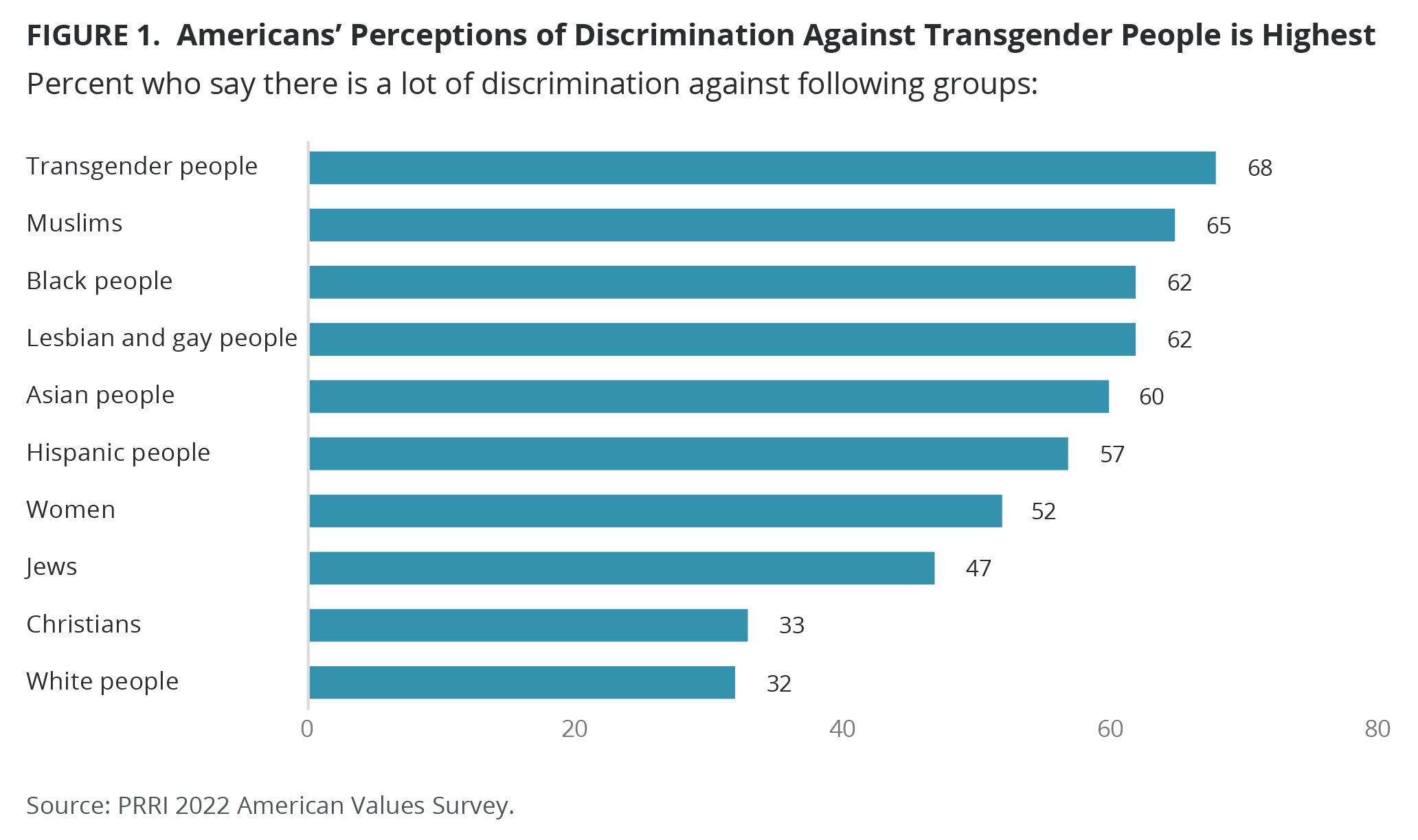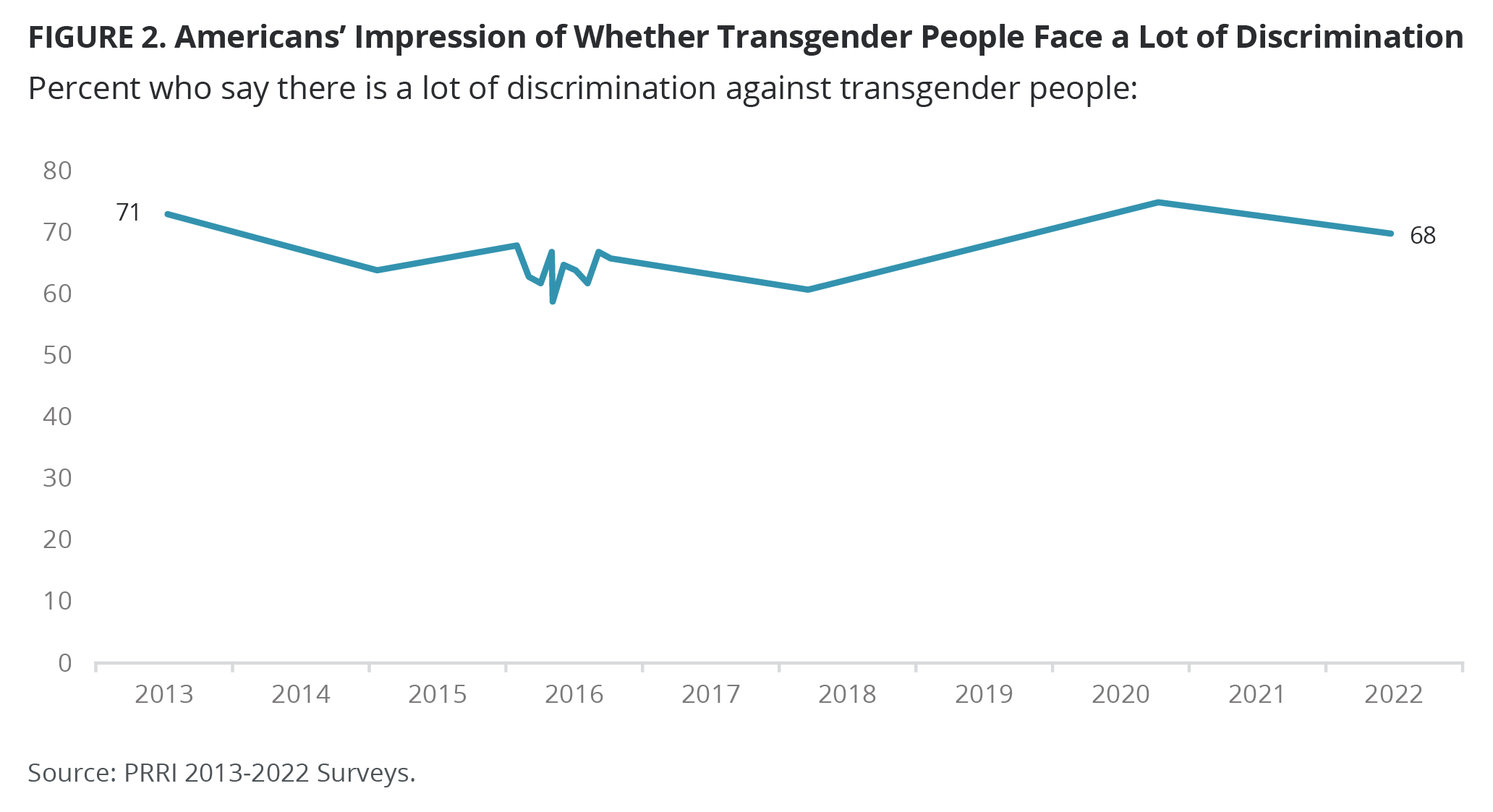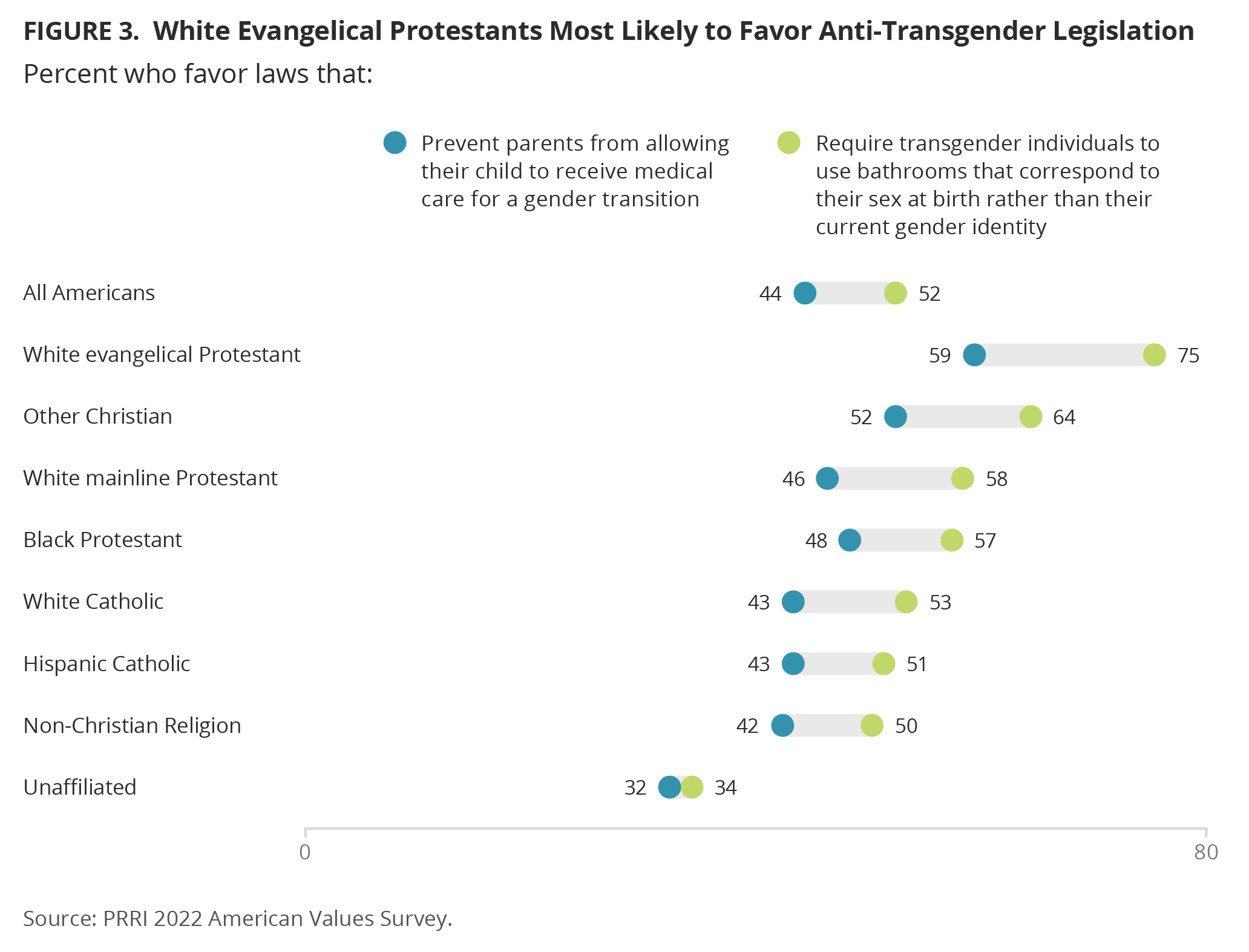The year 2022 saw the highest-ever number of anti-transgender bills introduced in state legislatures across the nation, but 2023 is on track to set a new record. In January alone, Republican lawmakers in at least 25 states introduced more than 150 bills that would limit the rights and freedoms of transgender people. According to PRRI’s Public Fellow Kelsy Burke, the meteoric rise is explained, in part, by the latest wave of moral panic manufactured by conservative media outlets. PRRI’s latest national survey shows that while support for LGBTQ rights has increased overall, so too has opposition to the T in that acronym. This trend is troubling, given that transgender people — especially transgender people of color — face disproportionate discrimination. What is perhaps most disconcerting is that Americans generally believe transgender people are the most vulnerable minority in the nation, but even this belief fails to counter anti-transgender attitudes.

In 2022, 68% of Americans said it was their impression that there was a lot of discrimination against transgender people. Other groups that were similarly perceived as facing high levels of discrimination include Muslims (65%), gay and lesbian people (62%), and Black people (62%). The perception that transgender people face significant discrimination was also high in 2021, when 73% of Americans said they believed this to be the case. In 2013, when PRRI first began asking this question, 71% of Americans believed transgender people faced discrimination. Since then, the majority of Americans have consistently identified transgender people as vulnerable to discrimination.

Even though a majority of Americans consistently say that they believe transgender people face discrimination, many also support laws that contribute to the ongoing marginalization of this already vulnerable group. More than half of respondents who recognize transgender people as facing profound discrimination (56%) also support laws that would require transgender individuals to use bathrooms that correspond to their sex at birth as well as laws that would prevent parents from allowing their children to receive medical care for a gender transition.
White evangelical Protestants are especially likely to favor anti-transgender legislation: 75% favor laws that would require transgender people to use bathrooms that correspond to their sex at birth (compared to 52% of all Americans) and 59% favor laws that would prevent parents from allowing their children to receive medical care for a gender transition (compared to 44% of all Americans).[1] Despite this, more than half of white evangelical Protestants (51%) believe that transgender people face a lot of discrimination.

The recognition that transgender people face discrimination has not resulted in meaningful efforts to remedy the problem. The simultaneous acknowledgment that transgender people are vulnerable to discrimination and the wide support for anti-transgender legislation is a paradox that ought to be considered seriously as Americans wrestle with questions of freedom and inclusion in a pluralistic society.
[1] “Other Christians” includes any Christian not included in the white evangelical Protestant, white mainline Protestant, Black Protestant, or white and Hispanic Catholic groups. This group is multiracial and includes all Latter-day Saints, Jehovah’s Witnesses, Orthodox Christians, and Hispanic Protestants.




